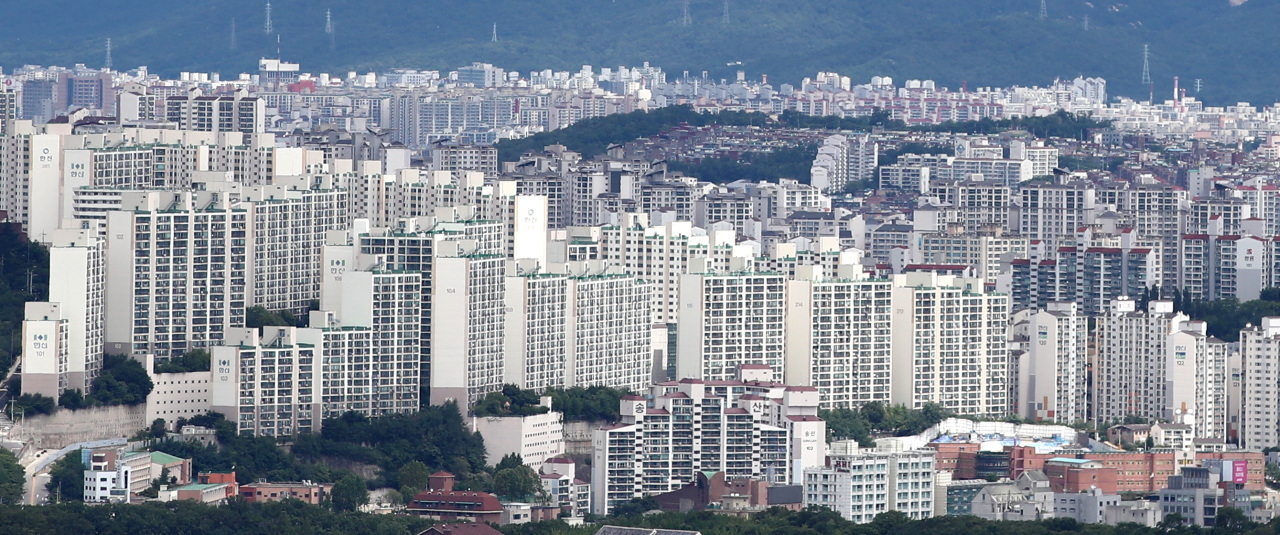 |
(Yonhap) |
A Seoul citizen has to save their entire income without spending a dime for more than 12 years in order to buy a house in the city due to the country’s soaring apartment prices, data showed Monday.
The capital city’s house price to income ratio, or PIR -- a widely used measurement of house affordability in a given region -- reached 12.13 in 2019, said Rep. Yang Kyung-sook of the ruling Democratic Party of Korea, quoting data from the National Assembly Research Service.
The agency measured the ratio by dividing the Seoul area’s median house price by its median household’s income, worth some 827 million won ($693,853) and 60 million won as of last year, respectively and then expressed the calculated value in years. The figure has been on the rise from 2017 (10.16) and 2018 (10.88).
Soaring apartment prices have extended the amount of time one needs to save money to buy a house in Seoul, widening the gap between household income and home price, data showed.
In July, the average apartment prices in Seoul skyrocketed by 1.12 percent from a month earlier. By district, the city‘s underdeveloped outskirts -- Nowon-gu, Dobong-gu and Gangbuk-gu -- mainly drove up the home prices, each posting a 1.22 percent, 0.89 percent and 0.8 percent rise on-month. The other four districts in the so-called affluent Big Four or the Gangnam Belt also marked an increase rate more than 0.7 percent in the given period.
July’s house price hike was the steepest since the Moon administration unveiled a set of regulations on loans and housing transactions on December 16 last year, designed to cool down the overheated real estate market, according to the Korea Appraisal Board.
With the government’s real estate measures, the pace of the rise in apartment prices in Seoul slowed down from 0.45 percent in January to minus 0.2 percent in May. The figures for June, however, soared by 0.13 percent, although financial authorities released additional property rules in the same month as part of a move to reduce speculative demand in the domestic property market, officials said.
Some apartments in the metropolitan area are also estimated to have increased in value by 1.3 percent from the previous month, which led apartment prices nationwide to climb 0.89 percent, hitting the highest mark in nearly nine years.
Meanwhile, the government trotted out its 22nd set of real estate policies on July 10, including levying a comprehensive real estate tax on multiple home owners in a range between 1.2 percent and 6 percent. The ruling Democratic Party is slated to pass the latest plan at the temporary parliamentary session held on Monday.
By Choi Jae-hee (
cjh@heraldcorp.com)








![[Today’s K-pop] Blackpink’s Jennie, Lisa invited to Coachella as solo acts](http://res.heraldm.com/phpwas/restmb_idxmake.php?idx=644&simg=/content/image/2024/11/21/20241121050099_0.jpg)